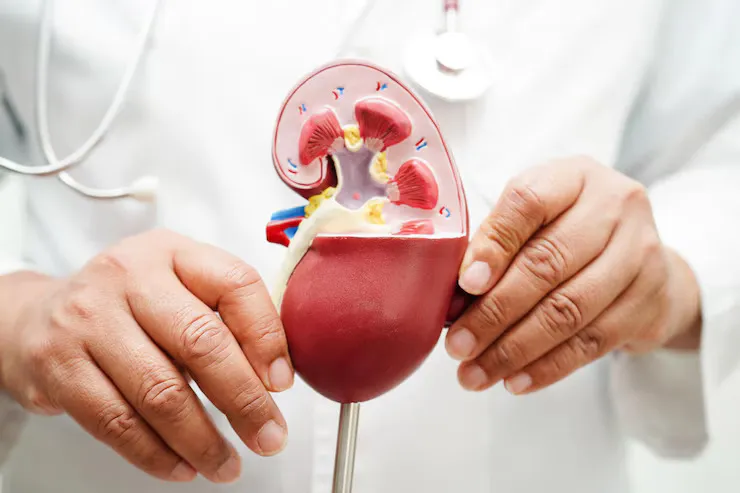
Why Urological Health is Important: A Vital Aspect of Your Well-being
When we think of health, our minds often go straight to heart health, mental well-being, or physical fitness. However, one crucial aspect that sometimes gets overlooked is urological health. The urinary system, which includes the kidneys, bladder, ureters, and urethra, plays a critical role in maintaining the body's balance and overall function. From regulating waste to ensuring hormonal balance, the urinary system is essential. Here’s why urological health should be a priority in your life.
-
Prevention of Common Health Issues
Urological conditions, such as urinary tract infections (UTIs), kidney stones, and bladder problems, are more common than you might think. These issues can range from mildly inconvenient to severely debilitating. By maintaining good urological health, you reduce the risk of these common ailments, which can lead to more significant problems if left untreated. Regular check-ups and early detection can prevent these issues from escalating into something more serious.
-
Maintaining Kidney Health
Your kidneys are vital organs responsible for filtering waste and excess fluids from the blood, which are then excreted as urine. If your kidneys aren't functioning correctly, it can lead to a buildup of waste products in your body, causing severe health complications. Chronic kidney disease (CKD) is a silent killer that often goes unnoticed until it has progressed significantly. By monitoring your urological health, you can keep your kidneys functioning optimally and catch any signs of trouble early.
-
Managing Bladder Health
Bladder health is essential for controlling urination and preventing issues like incontinence or overactive bladder. These conditions can significantly impact your quality of life, leading to discomfort, embarrassment, and even social isolation. Keeping your bladder healthy through regular hydration, proper hygiene, and pelvic floor exercises can help prevent these issues and maintain your overall well-being.
-
Impact on Sexual Health
For both men and women, urological health is closely linked to sexual health. Conditions such as erectile dysfunction in men or urinary incontinence in women can affect intimate relationships and self-esteem. For men, prostate health is a significant aspect of urological care, as issues with the prostate can lead to problems with urination and sexual function. Addressing these issues with a urologist can improve both physical health and emotional well-being.
-
Hormonal Balance
Your urological system, particularly the kidneys, plays a role in regulating hormones that control blood pressure, red blood cell production, and calcium metabolism. Imbalances in these hormones can lead to various health problems, such as anemia, high blood pressure, and weakened bones. By taking care of your urological health, you're also supporting your body’s hormonal balance.
-
Early Detection of Serious Conditions
Regular urological check-ups can lead to the early detection of more serious conditions, such as bladder cancer, kidney cancer, or prostate cancer. Early detection is crucial for effective treatment and can significantly improve the prognosis of these diseases. If you're experiencing symptoms like blood in the urine, persistent pain in the lower back, or difficulty urinating, it's essential to consult a urologist promptly.
-
Quality of Life
Good urological health contributes directly to your overall quality of life. When your urinary system functions properly, you're free to enjoy daily activities without the discomfort or inconvenience of frequent bathroom visits, pain, or other symptoms. This allows you to lead a more active, confident, and fulfilling life.
-
How to Maintain Urological Health
Taking care of your urological health doesn't have to be complicated. Simple lifestyle changes can make a big difference. Here are a few tips :
- Stay Hydrated : Drinking plenty of water helps flush out toxins and keeps your urinary system functioning smoothly.
- Maintain a Healthy Diet : A balanced diet rich in fruits, vegetables, and whole grains can reduce the risk of kidney stones and other urological issues.
- Exercise Regularly : Physical activity can improve bladder control and reduce the risk of kidney disease.
- Practice Good Hygiene : Proper hygiene, especially after using the restroom, can prevent infections.
- Regular Check-ups : Don’t wait for symptoms to appear. Regular visits to your healthcare provider can catch issues before they become serious.
Conclusion
Urological health is a vital component of your overall well-being. By paying attention to this often-overlooked aspect of health, you can prevent common issues, maintain vital organ function, and enjoy a better quality of life. Don’t wait until a problem arises—take proactive steps to keep your urological system healthy, and consult a specialist if you have any concerns. Your body will thank you for it.
